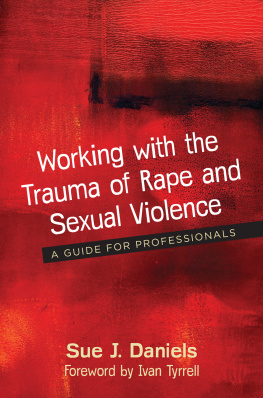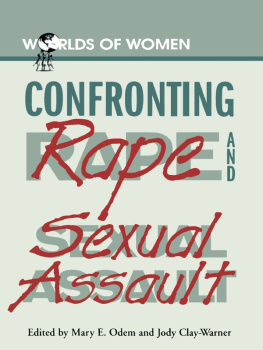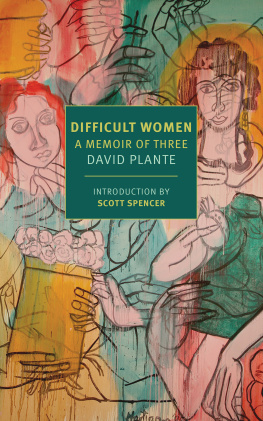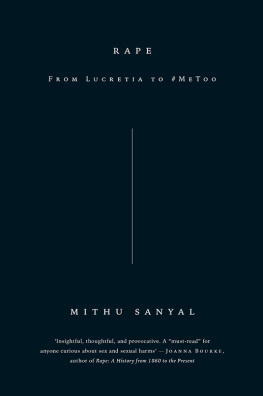
Germaine Greer was born in Melbourne and educated in Australia and at Cambridge University. Her book, The Female Eunuch (1969), remains one of the most influential texts of the feminist movement. Greer has had a distinguished academic career in Britain and the United States. She makes regular appearances in print and other media as a broadcaster, journalist, columnist and reviewer. Since 2001 she has been involved in rehabilitating sixty hectares of subtropical rainforest in south-east Queensland; in 2011, she set up Friends of Gondwana Rainforest, a UK charity, to help in financing that and similar projects.
Little Books on Big Ideas
Germaine Greer On Rage
Fleur Anderson On Sleep
Don Watson On Indignation
Katharine Murphy On Disruption
Sarah Ferguson On Mother
Nikki Gemmell On Quiet
Blanche dAlpuget On Lust & Longing
Leigh Sales On Doubt
Barrie Kosky On Ecstasy
David Malouf On Experience
Malcolm Knox On Obsession
Gay Bilson On Digestion
Anne Summers On Luck
Robert Dessaix On Humbug
Julian Burnside On Privilege
Elisabeth Wynhausen On Resilience
Susan Johnson On Beauty
Germaine
Greer
On
Rape

MELBOURNE UNIVERSITY PRESS
An imprint of Melbourne University Publishing Limited
Level 1, 715 Swanston Street, Carlton, Victoria 3053, Australia
www.mup.com.au

First published 2018
Text Germaine Greer, 2018
Design and typography Melbourne University Publishing Limited, 2018
This book is copyright. Apart from any use permitted under the Copyright Act 1968 and subsequent amendments, no part may be reproduced, stored in a retrieval system or transmitted by any means or process whatsoever without the prior written permission of the publisher.
Every attempt has been made to locate the copyright holders for material quoted in this book. Any person or organisation that may have been overlooked or misattributed may contact the publisher.
Text design by Alice Graphics
Cover design by Nada Backovic
Author photograph by Neil Spence Photography
Typeset by Typeskill
Printed in Australia by McPhersons Printing Group

9780522874303 (paperback)
9780522874310 (ebook)
Contents
What is rape?
The word rape as used in this essay will apply only to penetration of the vagina of an unwilling human female by the penis of a human male. It will not be a portmanteau word into which are tipped sexual assaults of many kinds, involving outrages inflicted with different instruments in different parts of the body. In the interests of clarity, the category of rape has here been decluttered, and the instrument involved limited to the penis and the site of the penetration to the vagina.
Though some of us might like to think of the vagina as sacred, and casual use of it as a desecration, it has never been revered. The name vagina is itself an insult. In Latin the word means scabbard, that is, sword sheath. Why this ugly word should have been accepted by the civilised world as the correct appellation for the birth canal is bewildering. The vernacular names for the vagina are now amongst the most shocking words anyone can say. Every English town used to have a Gropecunt Lane; now you wont find one anywhere.
These days the vagina is routinely accessed not only by the penis, but by a range of other instruments, to take cervical smears, swabs and samples for the diagnosis of a range of infections, for pregnancy terminations, for bimanual pelvic examinations, and for certain forms of ultrasound investigation. Todays women can expect to spend more time in the stirrups with a speculum in situ than any women in history. Not so long ago the vagina was feared as the entrance to the wild womb, but those days are long gone. Steroids have neutralised it. Even so, the vagina is not a hole like any other.
Rape is an awkward word, encumbered with all kinds of historical baggage, but its substitution by the expression sexual assault, as is the case with the penal code of New South Wales for example, is not an improvement. It has the effect of emphasising the level of violence involved, when rape itself need involve no violence at all. You can rape a sleeping woman without even waking her up.
Rape is not a rare and catastrophic event or an extraordinary act carried out by monsters; from the banal to the bestial rape is part of the tissue of everyday life. The US Rape,
As Margaret Sanger wrote in 1920, Woman was and is condemned to a system under which the lawful rapes exceed the unlawful ones a million to one.
Rape is a jagged outcrop in the vast monotonous landscape of bad sex; we can only understand its prevalence and our inability to deal with it if we position it correctly within the psychopathology of daily life. Many years ago when I was a guest at a country house party, I was awoken in the wee small hours by the woman in the bedroom next door shouting at her husband. Rupert! Leave me alone. Stop it. Get off me. The protests went on. At one point someone fell out of bed. The cries subsided, to be replaced by rhythmic creaking of bedsprings. Not long ago I asked her if she remembered the occasion. It turned out that it happened like that fairly often. Her husband slept badly, would read for half the night as she slept beside him, and would wake her up for sex that she didnt want. Fearful of waking the whole house, she would eventually stop struggling and protesting and give in.
Was that rape? she asked.
I replied that I was afraid it probably was, and added, But you wouldnt want him put away for seven years, would you?
She laughed wryly. With five children between them, and a loving if stormy relationship, she certainly did not. A different kind of feminist might have set about persuading her that she should feel resentful of this treatment and take some sort of action to discourage her husbands casual use of her body, but I could see no merit in persuading her that her situation was oppressive or that rebellionor separationwould be a better option. She has survived and they are still together, and have a dozen grandchildren.
If you google too tired for sex, say, you will read many accounts of non-consensual sex, some of them heartbreaking. It hurts to read the testimony of a woman with chronic pain who feels that it is her duty to pretend to enjoy sex with her husband, or the bitter words of the man whose wife winces if he touches her. How have we come to this pass? Non-consensual sex is banal and deeply ordinary but that is not to say that it is not an evil, with damaging consequences for both parties. A man who has sex with an unwilling woman alienates himself from intimacy with her. The woman who endures sex without pleasure suffers a steady corrosion of her self-esteem. Diurnal rape stifles love and imposes loneliness and withdrawal. The bitterest irony is that it is the unresponsive woman who will be blamed for the obliteration of what was once a mutual love.
In the 1970s when we still believed in sexual liberation, feminist reformers concerned themselves greatly with the female orgasm. What faking it means is that, when we should be most intimate and most open with each other, communication is blocked by an intractable lie. Once you start faking it you have to go on.
Next page














